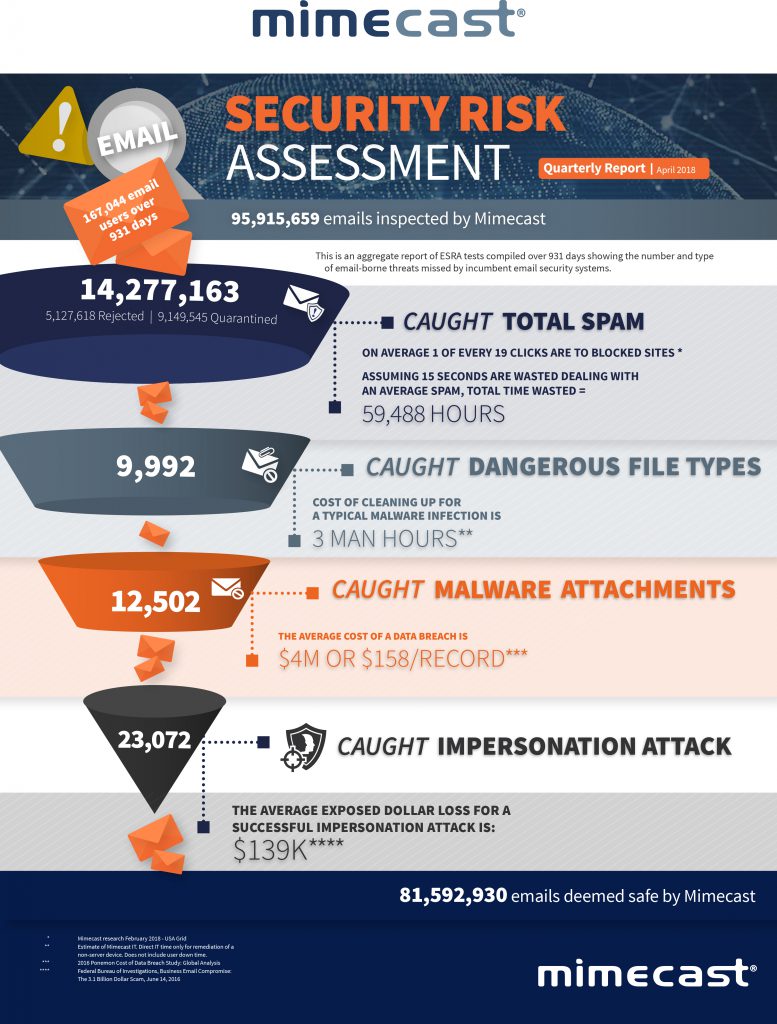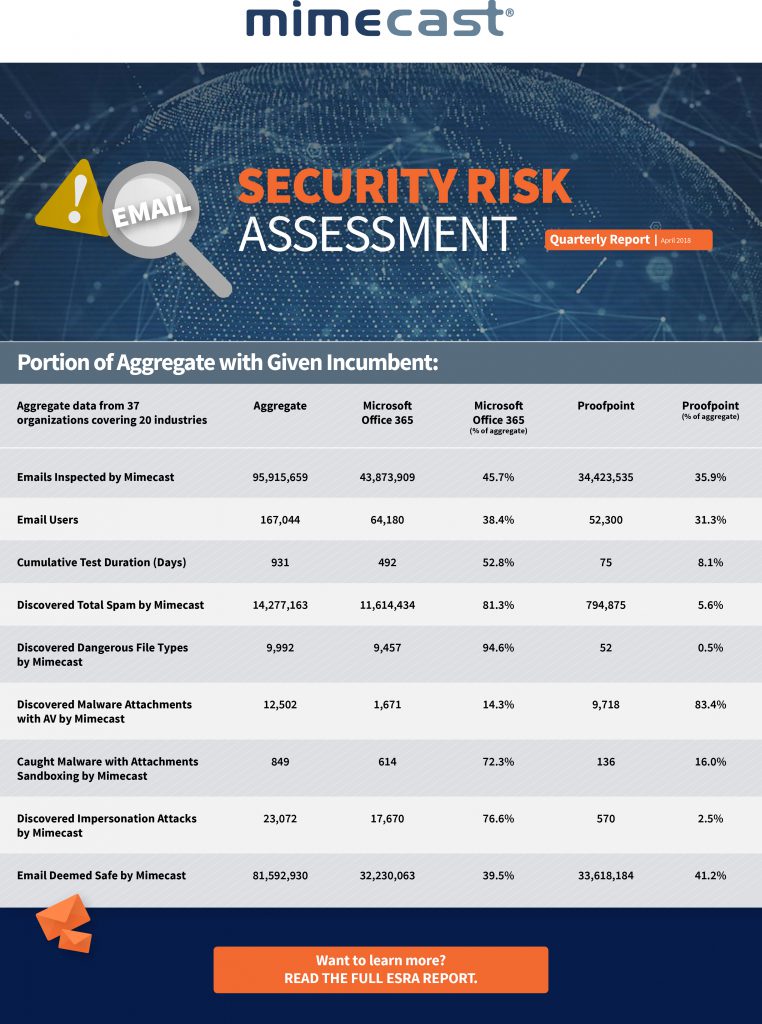Mimecast’s latest quarterly Email Security Risk Assessment (ERSA) has revealed thousands of known malware and impersonation attacks are getting past systems meant to protect organisations.
Email is an integral part of daily operations for most organisations, so it is important to ensure there are effective security strategies in place to manage these systems.
Mimecast Limited, a leading email and data security company, has announced the availability of its quarterly Email Security Risk Assessment (ESRA), a report of tests that measure the effectiveness of incumbent email security systems.
This quarter’s assessment reports that these systems missed 11,653 emails containing known malware, which should be the easiest to identify as they are detectable by commonly deployed endpoint-based anti-virus technologies.
Additionally, the report noted a continued challenge of securing organisations from unknown malicious attachments, dangerous files types, impersonation attacks and even basic spam.
As part of the assessment, Mimecast inspected more than 95 million emails, all of which had passed through organisations’ incumbent email security vendors.
These organisations, in 20 different industries, invested millions of dollars to deploy a variety of commonly used on-premise and hybrid email security systems.
The latest report found more than 14,277,163 pieces of spam, 9,992 emails containing dangerous file types, and 849 unknown emails with malware attachments – all missed by the incumbent providers and delivered to users’ inboxes.


Mimecast’s report shows thousands of known malware and impersonation attacks are getting past systems meant to protect organisations
Most notably, 11,653 known emails with malicious attachments passed through these systems, an increase of 532% in comparison to last quarter’s assessment.
Impersonation attacks also continue to be a problem for organisations as 23,072 were caught – increasing 22% in comparison quarter over quarter. The report indicates the need for organisations to enhance their cyber resilience strategies for email.
Matthew Gardiner, Cybersecurity Strategist at Mimecast, said: “Mimecast’s ESRA is aiming to establish a standard of transparency that raises the bar for all security vendors helping organisations pinpoint weaknesses in their defences.
“Emails ranging from opportunistic spam, targeted impersonation attacks and unknown malware are getting through incumbent email security systems.
“The security system of one primary cloud email platform missed 76.6% of the aggregate impersonation attacks while another global security vendor missed the 83.4% of the ‘known’ malware attachments.”
Mimecast recently conducted global research with Vanson Bourne on the state of organisations’ cybersecurity, what attacks they’ve seen increase and their level of confidence to thwart these evolving attacks.
The findings were based on responses from 800 IT decision makers and c-level executives. Not surprisingly, and consistent with the results of the Mimecast ESRA report, organisations are forecasting a challenging future, with nearly 60% of respondents having said their organisation is likely to suffer a negative business impact because of an email-borne attack in 2018.
Also in line with the ESRA results, despite efforts, email-borne attacks are on the rise. The clear majority of Vanson Bourne respondents have seen untargeted phishing attacks (94%) or targeted spear-phishing attacks (92%) with malicious links in the past 12 months, with the volume of both attacks increasing 56% over the last year.
Most respondents also reported seeing email-based impersonation attacks asking either to initiate wire transfers (87%) or for confidential data (85%) over the last year.
Click below to share this article


